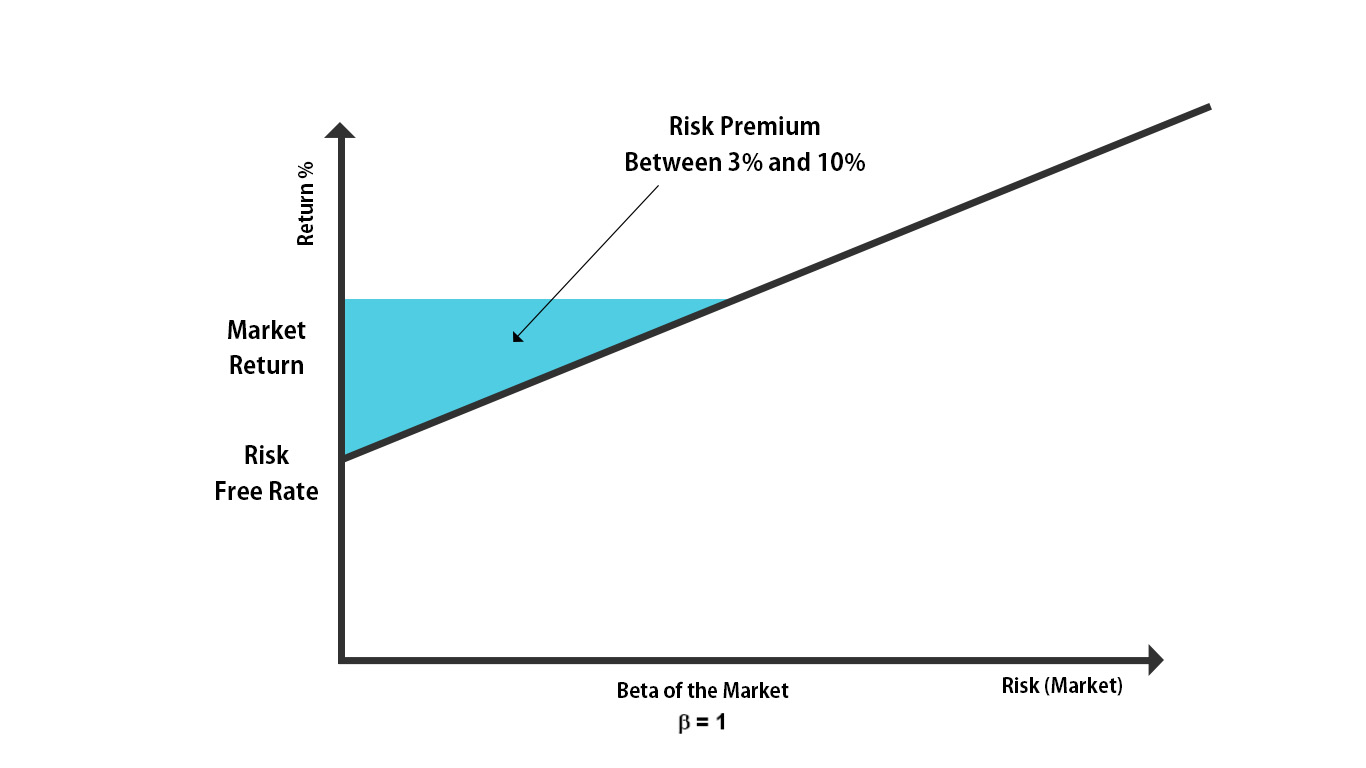

Finance
How Long Does A Credit Inquiry Affect Credit
Published: March 4, 2024
Learn about the impact of credit inquiries on your credit score and how long they can affect your financial health. Find out more about finance and credit management.
(Many of the links in this article redirect to a specific reviewed product. Your purchase of these products through affiliate links helps to generate commission for LiveWell, at no extra cost. Learn more)
Table of Contents
Introduction
Understanding the impact of credit inquiries on your credit score is crucial for maintaining healthy financial standing. When you apply for credit, whether it's a loan, credit card, or mortgage, the potential lender will likely request information about your credit history from one or more credit bureaus. This request is known as a credit inquiry, and it can have implications for your credit score.
Credit inquiries are categorized into two types: hard inquiries and soft inquiries. Hard inquiries occur when you apply for new credit, such as a car loan or a credit card. On the other hand, soft inquiries are generated for background checks, pre-approved offers, or credit monitoring. It's important to understand the distinction between these two types of inquiries, as they can impact your credit score differently.
In this comprehensive guide, we'll delve into the intricacies of credit inquiries, exploring their types, durations, and the factors that influence their impact on your credit score. By the end of this article, you'll have a clear understanding of how long credit inquiries affect your credit and how to manage them effectively to maintain a healthy credit profile. Let's embark on this journey to unravel the mysteries of credit inquiries and their influence on your financial well-being.
What is a Credit Inquiry?
A credit inquiry, also known as a credit check or credit pull, occurs when a third party requests to view your credit report from one of the major credit bureaus. This inquiry provides the requester with information about your credit history, including your payment history, current debts, length of credit history, and other relevant financial data. The purpose of the credit inquiry is to assess your creditworthiness and determine the risk involved in extending credit to you.
It’s important to note that not all credit inquiries are initiated by the consumer. When you apply for credit, such as a credit card, auto loan, or mortgage, the potential lender will typically request a copy of your credit report to evaluate your financial responsibility and assess the likelihood of you repaying the borrowed funds. These are known as “hard inquiries” and are visible to other creditors and can impact your credit score.
On the other hand, “soft inquiries” are generated in situations where a third party, such as a potential employer, landlord, or even yourself, requests a copy of your credit report for background checks, pre-approval offers, or credit monitoring. Unlike hard inquiries, soft inquiries do not impact your credit score and are not visible to potential creditors.
Understanding the nature of credit inquiries is essential for managing your credit effectively and minimizing any potential negative impact on your credit score. By being aware of when and why credit inquiries occur, you can take proactive steps to maintain a healthy credit profile and secure favorable terms when seeking credit or loans.
Types of Credit Inquiries
Credit inquiries are broadly categorized into two types: hard inquiries and soft inquiries. Each type serves a distinct purpose and has varying implications for your credit score and financial standing.
Hard Inquiries
Hard inquiries occur when you apply for new credit, such as a credit card, auto loan, mortgage, or personal loan. These inquiries are initiated by potential lenders or financial institutions to assess your creditworthiness and determine the level of risk associated with extending credit to you. When you authorize a hard inquiry by applying for credit, it becomes a part of your credit history and is visible to other creditors. Hard inquiries can impact your credit score, albeit temporarily, as they indicate that you may be taking on new debt. It’s important to be mindful of the frequency of hard inquiries, as multiple inquiries within a short period can raise concerns for potential lenders and potentially lower your credit score.
Soft Inquiries
Soft inquiries, also known as soft pulls, are generated in situations where a third party requests to view your credit report for reasons other than a credit application. These inquiries are not initiated by you and do not impact your credit score. Common examples of soft inquiries include background checks by potential employers, pre-approval offers from credit card companies, and credit checks for rental applications. Additionally, when you check your own credit report, it results in a soft inquiry, which has no bearing on your credit score or creditworthiness.
Understanding the distinction between hard and soft inquiries is essential for managing your credit effectively. By being aware of the types of inquiries and their respective impacts, you can make informed decisions when seeking new credit and take proactive steps to maintain a positive credit profile.
How Long Does a Hard Credit Inquiry Affect Credit?
When you apply for new credit, such as a credit card or a loan, a hard inquiry is generated as the potential lender requests to view your credit report. It’s natural to wonder how long this type of inquiry will impact your credit score.
Hard inquiries remain on your credit report for about two years. However, their impact on your credit score is most significant within the first 12 months. Initially, a hard inquiry can cause a minor dip in your credit score, typically by a few points. This dip is temporary and is part of the normal credit evaluation process. Over time, the impact of the hard inquiry diminishes, and after 12 months, it generally ceases to affect your credit score altogether. While the inquiry remains on your credit report for the full two years, its influence on your credit score gradually wanes as time passes.
It’s important to note that the effect of a hard inquiry on your credit score is relatively minor when compared to other factors, such as payment history and credit utilization. Responsible credit management and timely bill payments play a more substantial role in determining your creditworthiness than the presence of hard inquiries. Therefore, while it’s advisable to be mindful of the number of hard inquiries you accumulate, especially within a short timeframe, their impact is temporary and should not be a cause for undue concern if managed responsibly.
Understanding the duration and impact of hard inquiries on your credit score empowers you to make informed decisions when applying for credit. By being aware of their temporary nature, you can navigate the credit application process with confidence and take proactive steps to maintain a healthy credit profile.
How Long Does a Soft Credit Inquiry Affect Credit?
Unlike hard inquiries, soft inquiries do not impact your credit score. These inquiries are generated for background checks, pre-approval offers, credit monitoring, and other non-credit application purposes. As a result, they have no bearing on your creditworthiness or credit standing. When a soft inquiry is made, it is recorded on your credit report for informational purposes, but it does not affect your credit score in any way.
Given that soft inquiries are not associated with credit applications or attempts to secure new financing, they are not factored into credit scoring models. Therefore, whether a soft inquiry occurred recently or several months ago, it will not influence your credit score or impact your ability to obtain credit. This distinction is important to understand, as it allows individuals to engage in activities such as credit monitoring and background checks without concern for potential credit score repercussions.
Furthermore, when you check your own credit report, it results in a soft inquiry. This means that monitoring your credit for accuracy and staying informed about your financial standing does not have any negative impact on your credit score. In fact, regularly reviewing your credit report is a responsible financial practice that can help you identify and address any inaccuracies or potential issues in a timely manner.
Overall, the presence of soft inquiries on your credit report does not pose any risk to your credit score or financial well-being. Understanding the distinction between hard and soft inquiries empowers individuals to engage in various financial activities without unnecessary concern for their credit score, ultimately promoting financial literacy and responsible credit management.
Factors Impacting the Effect of Credit Inquiries
While credit inquiries can have an impact on your credit score, the extent of this impact is influenced by several factors. Understanding these factors can provide valuable insights into managing credit inquiries effectively and minimizing their potential negative effects.
Frequency of Inquiries
The frequency of credit inquiries is a significant factor in determining their impact on your credit score. When multiple hard inquiries are made within a short period, it can raise concerns for potential lenders and may lead to a temporary dip in your credit score. This pattern may indicate a heightened risk of taking on additional debt, which could potentially strain your financial resources. Therefore, it’s advisable to be mindful of the number of credit applications made within a specific timeframe to avoid triggering unnecessary alarm among creditors.
Credit Mix
The types of credit inquiries and the overall composition of your credit accounts can influence the effect of inquiries on your credit score. For example, if you have a healthy mix of credit accounts, including revolving credit (such as credit cards) and installment loans (such as a mortgage or auto loan), the impact of inquiries may be less pronounced. Lenders typically assess the diversity of your credit portfolio to gauge your ability to manage different types of credit responsibly, which can mitigate the impact of individual inquiries.
Credit History Length
The length of your credit history also plays a role in determining the effect of credit inquiries. Individuals with longer credit histories may experience a milder impact from inquiries, as they have established a track record of managing credit over time. Conversely, those with limited credit histories may see a more noticeable impact from inquiries, as there is less historical data available to assess creditworthiness. Understanding this dynamic can help individuals anticipate the potential effects of inquiries based on their credit history length.
Overall Credit Management
Ultimately, the impact of credit inquiries is intertwined with your overall credit management practices. Responsible credit utilization, timely bill payments, and prudent financial decision-making can mitigate the effects of inquiries on your credit score. By maintaining a positive credit profile and demonstrating sound financial behaviors, individuals can minimize the influence of inquiries and position themselves favorably in the eyes of potential lenders.
By considering these factors, individuals can navigate the credit application process strategically and take proactive steps to manage credit inquiries effectively. Understanding the nuances of credit scoring and the variables that impact the effect of inquiries empowers individuals to make informed financial decisions and maintain a healthy credit standing.
Managing Credit Inquiries
Effectively managing credit inquiries is essential for maintaining a healthy credit profile and minimizing any potential negative impact on your credit score. By implementing strategic approaches and proactive measures, individuals can navigate the credit application process with confidence and optimize their creditworthiness.
Be Mindful of Application Frequency
One of the key aspects of managing credit inquiries is being mindful of the frequency of credit applications. Avoid making multiple credit applications within a short timeframe, as this can raise concerns for potential lenders and may lead to a temporary dip in your credit score. Instead, space out credit applications strategically and apply for credit only when necessary, ensuring that each application aligns with your financial goals and needs.
Monitor Your Credit Report
Regularly monitoring your credit report allows you to stay informed about the inquiries recorded on your file and identify any unauthorized or suspicious activity. By reviewing your credit report, you can ensure the accuracy of the information and address any discrepancies or potential issues in a timely manner. This proactive approach to credit monitoring empowers you to maintain a clear understanding of your credit standing and take corrective actions as needed.
Understand the Purpose of Inquiries
Understanding the purpose and nature of credit inquiries is crucial for managing them effectively. Distinguish between hard inquiries, which occur when applying for new credit, and soft inquiries, which are generated for informational or non-credit application purposes. By recognizing the distinction between these types of inquiries, you can engage in various financial activities without unnecessary concern for their impact on your credit score.
Strategically Apply for Credit
When applying for credit, take a strategic approach to ensure that each application aligns with your financial objectives. Consider factors such as credit card rewards, interest rates, and loan terms to make informed decisions about when and where to apply for credit. By approaching credit applications strategically, you can minimize the number of inquiries while maximizing the potential benefits of new credit accounts.
Seek Professional Guidance
If you have concerns about managing credit inquiries or navigating the credit application process, consider seeking professional guidance from financial advisors or credit counseling services. These resources can provide personalized insights and recommendations tailored to your specific financial circumstances, empowering you to make informed decisions and optimize your credit management strategies.
By implementing these proactive measures and maintaining a keen awareness of credit inquiries, individuals can effectively manage their credit profiles and position themselves favorably in the eyes of potential lenders. Strategic credit management practices, combined with a clear understanding of the factors influencing credit inquiries, can contribute to a positive credit standing and long-term financial well-being.
Conclusion
Understanding the dynamics of credit inquiries and their impact on your credit score is a fundamental aspect of responsible credit management. Throughout this comprehensive guide, we’ve explored the nuances of credit inquiries, including their types, durations, and the factors that influence their effects on your credit standing. By gaining insights into these essential elements, you are better equipped to make informed decisions and navigate the credit application process strategically.
Hard inquiries, which occur when applying for new credit, can have a temporary impact on your credit score, with their influence diminishing over time. It’s important to be mindful of the frequency of hard inquiries and approach credit applications strategically to minimize any potential negative effects. Soft inquiries, on the other hand, do not impact your credit score and are generated for informational or non-credit application purposes, providing individuals with flexibility in engaging in various financial activities.
Factors such as the frequency of inquiries, credit mix, credit history length, and overall credit management practices play a significant role in determining the effect of inquiries on your credit score. By considering these factors and implementing proactive measures, such as monitoring your credit report and strategically applying for credit, you can effectively manage credit inquiries and optimize your creditworthiness.
Ultimately, responsible credit management, including prudent credit utilization, timely bill payments, and a clear understanding of credit inquiries, is essential for maintaining a healthy credit profile. By staying informed and taking proactive steps to manage credit inquiries, individuals can position themselves favorably in the eyes of potential lenders and secure favorable terms when seeking credit or loans.
Armed with the knowledge and insights gained from this guide, you are empowered to navigate the world of credit inquiries with confidence and make informed decisions that support your long-term financial well-being. By applying these principles and maintaining a proactive approach to credit management, you can pave the way for a positive credit standing and a secure financial future.














